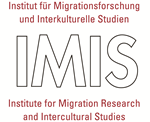| Projektart |
Promotion |
| Finanzierung |
|
| Themen |
- Aufnahme und Integration
- Flüchtlingspolitik
|
| Disziplinen |
|
| Projektwebseite |
www.eth.mpg.de |
| Laufzeit |
06/2016 ‒ 06/2019 |
| Geographischer Fokus |
|
| Institutionen |
|
| Beteiligte Personen |
|
Kurzbeschreibung
(nicht vorhanden)
Abstract
My PhD project investigates the relationship between processes of identification and discourses of integration in the context of a prolonged humanitarian assistance of asylum seekers in Dakar, Senegal.
Asylum is currently at the centre of international attention. Opinions are polarised on who “deserves” a refugee status and who does not. In this context the biographies of refugees are commonly narrated as journeys that start with the flight and end with the obtainment of a legal status in the host country. Based on figures gathered by the United Nations High Commissioner for Refugees (UNHCR), however, a person who fled will, on average, spend twenty years in exile. It is thus worth asking: When does a refugee stop being a refugee?
Hundreds of thousands of Mauritanians, Sierra Leoneans, Liberians, Senegalese, Ivoirians, Gambians, and Malians, who had fled their country of origin due to war, electoral violence, or persecution on the base of their ethnic identification, had to turn to international relief organisations to seek refuge in neighbouring countries. Senegal has been host to roughly half of the 120 000 Mauritanians, who left their country, fleeing the violence occurring at the Senegalese/Mauritanian border between 1989 and 1991. Since their arrival in Senegal, refugees from Mauritania – and later from other neighbouring countries – had been turning to the UNHCR, to whom the Senegalese state had delegated authority both in terms of appointing refugee status and providing humanitarian assistance for those who fled. After years of presence in the country, the UNHCR is withdrawing direct assistance to these Mauritian refugees. The organisation considers the length of its stay in Senegal sufficient for Mauritanian refugees’ successful ‘local integration’ among the Senegalese population. Now concentrating its assistance on refugees from other neighbouring countries, who have sought asylum more recently in Dakar, the UNHCR tries to delegate those activities aiming at a better integration of long-term refugees to various national and local state- and non-state actors.
Through the ethnography of the daily life of those identified as long-term refugees in Dakar, this project aims to shed light on their coping mechanisms and adaptation strategies to relief workers’ strategies of assistance. It will explore how international and local relief workers include and/or exclude certain groups of refugees from the overall goal of ‘integration’ on the basis of gendered, cultural, and ethnic ascriptions, and how the ones targeted negotiate to fit or escape these ascriptions, while trying to cope with the uncertainty of their situation. At the heart of my interest is the evolution of the complex relationship binding refugees and those I call ‘street-level humanitarians’.
Asylum and refuge have often been studied within the closed settings of camps, and the UNHCR often appears as the only structure engaging with refugees in the field. Terminologies used by those involved in the management of asylum relief have often been taken for granted as aspects of refugee populations’ particularities rather than being questioned as forms of classification. In this project I therefore want to consider the given local context – i.e. the city of Dakar – in which forced migration is experienced, and focus on refugees’ life beyond ‘refugeeness’. Local NGO workers often function as key agents in the process of implementing UNHCR policies, their relationship with refugees beyond their role as translators will thus be analysed. Finally, the terminologies employed in refugee assistance will be examined as performative classifications shared by the actors involved to assess worthiness and order priorities for relief distribution.









